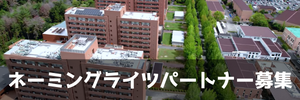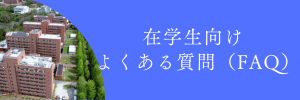(English announcement can be found in the latter half of this notice.)
広島大学バイオマスプロジェクト研究センターと中国地域バイオマス利用研究会の共催で広島大学バイオマスイブニングセミナーを開催しています。バイオマスに関する基本的な考え方から最先端の情報までをカバーして、この地域におけるバイオマスの活動に資することを目的とするものです。第74回を以下の日程で開催しますので、ご参集下さい。
日時
2019年5月16日(木)16:20~17:50
会場
広島大学東広島キャンパス工学部108講義室 (従来の開催教室と異なっております。ご注意下さい。)
広島大学 東広島キャンパス
https://www.hiroshima-u.ac.jp/en/access/higashihiroshimacampus
工学部 建物配置図
www.hiroshima-u.ac.jp/eng/access/building
工学部 講義室配置図
www.hiroshima-u.ac.jp/eng/access/lectureroom
プログラム
講演:広島大学大学院工学研究科 M1 小川 寛太
「水熱反応場からの直接質量分析によるギ酸の確認」
水熱反応場は、水熱前処理、水熱炭化、直接液化、超臨界水ガス化など、各種のバイオマス変換に用いられる高温高圧の水反応場でありますが、その高い温度、圧力のために内部で進行する反応を確認することが容易ではありません。実際には生成物を急冷、減圧して回収、分析を行っていますが、この過程で反応がさらに進行したり、より安定な物質に変化してしまっている可能性も否定できません。しかしながら、現在のところ、サンプリングを行うことができる水熱条件は250 ℃までの低温に限定されています。これに対し、ニードルバルブを細かく制御することでより高温までサンプリングを行う水熱条件を広げられる可能性があります。しかしながら、これまでに250 ℃以上の反応場から直接サンプリングを行った検討例はありません。そこで、本研究では、ニードルバルブを導入し、400 ℃までの高温場からの直接サンプリングを行うことを目的とします。
講演:広島大学大学院工学研究科 D2 Mojarrad Mohammad
「Shewanella属細菌を用いた低温菌シンプル酵素触媒による3-ヒドロキシプロピオン酸と1,3-プロパンジオールの同時生産」
本研究では低温菌シンプル酵素触媒(PSCat)による3-ヒドロキシプロピオン酸と1,3-プロパンジオールの生産について検討を行いました。DhaB、DhaT、PuuCを発現させた低温菌を用いました。すべてのサンプルは酵素活性を評価する前に45℃、15分の熱処理を行いました。アルデヒドデヒドロゲナーゼ活性を測定したところ、NADH濃度が0.5もしくは1 mMの添加および40℃での反応で活性が見られました。また、DhaTを発現させた株でも同様の結果が得られました。現在、PSCatによる同時変換反応を評価しているところです。
講演:広島大学大学院統合生命科学研究科 助教 田島 誉久
「シンプル酵素触媒によるイタコン酸の生産」
シンプル酵素触媒は熱処理により宿主の代謝酵素を排除するとともに基質の膜透過性を向上させて変換酵素による効率的な変換を行う触媒です。このシンプル酵素触媒により、クエン酸からイタコン酸を生産するために中温性の2種類の酵素をShewanella属細菌に発現させ高収率でイタコン酸を生産しました。また、効率的な変換のために触媒の固定化や2種類の酵素を近接化させる取り組みを行っており、それらを含めて紹介します。
司会・解説:広島大学大学院工学研究科 教授 松村 幸彦
なお、18:00より意見交換会(参加費 800円)を開催します。ご都合の付く方はこちらにもご参加下さい。
The 74th Hiroshima University Biomass Evening Seminar
(The 52nd Hiroshima University ACE Seminar)
Biomass Project Research Center, Hiroshima University, and HOSTY Association are co-organizing the Hiroshima University Biomass Evening Seminar. This seminar covers topics from the fundamentals of biomass to the latest information so that it can contribute the activities on biomass in this district. The 74th seminar will be held as follows. Please join.
Date & Time
Thu.16 May. 2019 16:20-17:50
Place
Engineering 108 Lecture Room, Higashi-Hiroshima Campus, Hiroshima University
Higashi Hiroshima Campus, Hiroshima University
https://www.hiroshima-u.ac.jp/en/access/higashihiroshimacampus
School of Engineering Buildiing map
https://www.hiroshima-u.ac.jp/en/access/higashihiroshimacampus/aca_7
School of Engineering Lecture room map
www.hiroshima-u.ac.jp/eng/access/lectureroom
Program
Lecture: Kanta OGAWA
M1 Graduate School of Engineering, Hiroshima University
“Detection of Formic Acid from Hydrothermal Reaction Field by Using In-Situ Mass Spectrometry”
Hydrothermal reaction field is often employed for biomass conversion, but due to its high temperature and pressure, it is not easy to detect the chemical species in the reactor. Products are often analyzed after cooling down and depressurization, but the possibility of reaction during these steps cannot be denied. Thus, in-situ mass spectrometry has been proposed to directly analyze the chemical species in the reactor. However, so far this technology can be applied only to temperature lower than 250 ℃. In this study, we improved the operation so that analysis from the reactor temperature or 400 ℃ is successfully conducted. Decomposition of formic acid was observed.
Lecture: Mojarrad Mohammad
D2 Graduate School of Engineering, Hiroshima University
“Simultaneous production of 3-Hydroxypropionic acid and 1, 3-Propanediol by psychrophile-based simple biocatalysts in Shewanella sp.”
This study examines the potential of the Psychrophile-based Simple bioCatalyst approach in the production of 3-HP and 1, 3-PDO compounds. The transformed psychrophile host bacteria by DhaB,DhaT, and PuuC, were tested and the desired result to measure the enzymatic activity for aldehyde dehydrogenase in transformed bacteria was obtained when the concentration of NADH was 0.5 and 1 mM, the optimum temperature was 40° C. All samples should be placed at 45° C for 15 minutes before measuring enzymatic activity. The same results revealed for both transformed bacteria by DhaT. We also are going to examine the potential of the PSCat approach in the production of and the co-production of these compounds.
Lecture: Takahisa TAJIMA
Assistant Professor, Graduate School of Integrated Sciences for Life, Hiroshima University
“Itaconic acid production by Psychrophile-based Simple biocatalyst”
We constructed “psychrophile-base simple biocatalyst (PSCat)” to produce valuable chemicals effectively, because heat treatment of the cells has positive effects on the production; inactivation of the host metabolic enzymes producing byproducts and improvement of the cell membrane permeability of substrates. High yield itaconic acid production was achieved by the PSCat heterologously expressing two mesophilic conversion enzymes in the psychrophilic Shewanella sp. We are trying to improve the conversion process by immobilization of PSCat and creating fusion proteins of conversion enzymes.
Chair & Commentary: Yukihiko MATSUMURA
Professor, Graduate School of Engineering, Hiroshima University
We will hold the discussion meeting from 18:00 (800 JPY needed). Join this meeting too, if you are available.


 Home
Home




